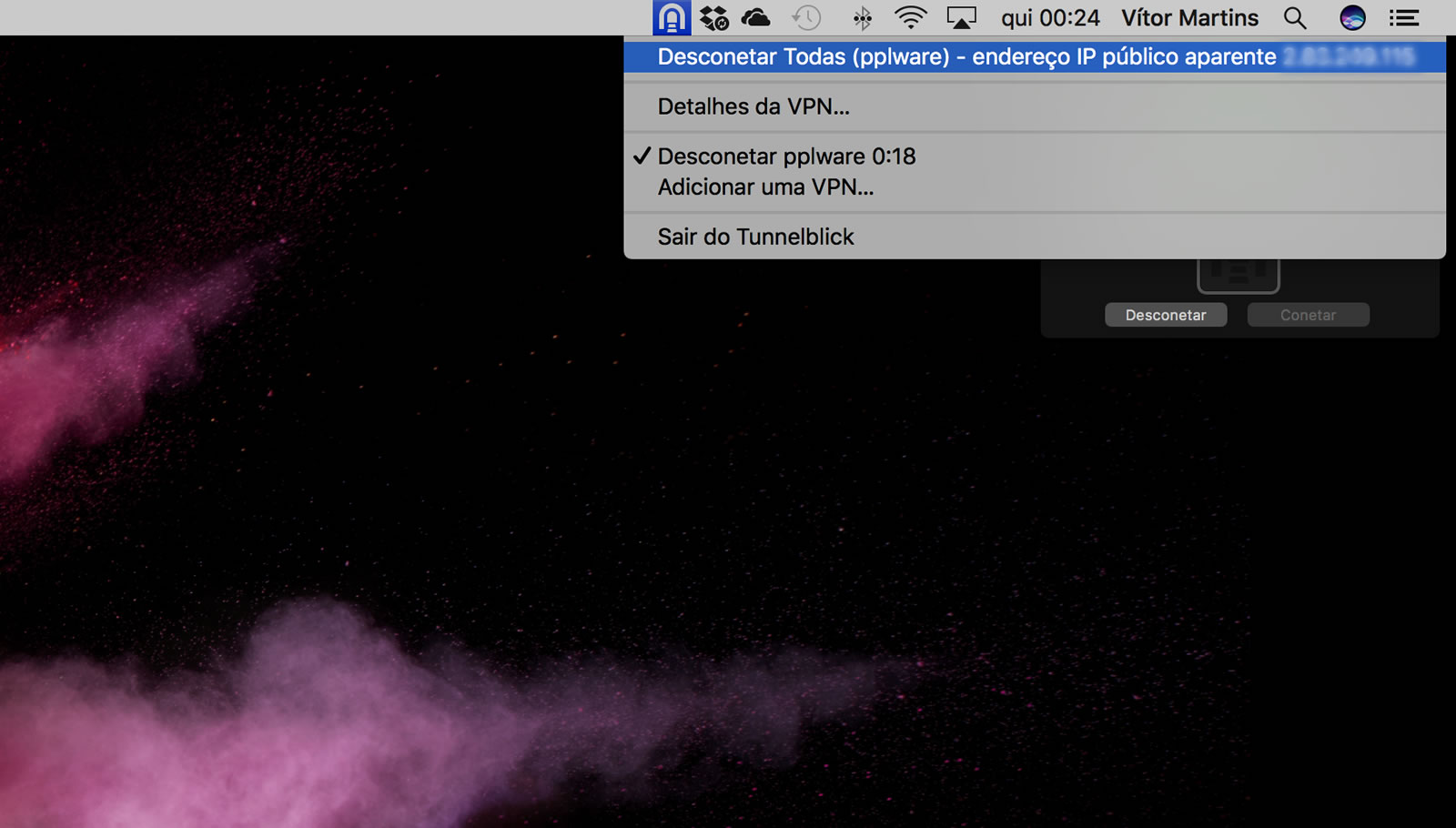고정 헤더 영역
상세 컨텐츠
본문
Cell card game. Navigate to your Downloads folder and double-click the Tunnelblick installation file you have just downloaded (it has a.dmg extension). In the window that opens, double-click on the Tunnelblick icon. A new dialogue box will pop up, asking you if you are sure you want to open the app. You will be asked to enter your Mac password. Tunnelblick provides free, user-friendly control of OpenVPN client connections for Mac OS. Download tunnelblick Step 2: Download the Mac OS configuration files package.
Important
Netgate is offering COVID-19 aid for pfSense software users, learn more.

There are three client options for Mac OS X.:
The OpenVPN command line client. Most users prefer a graphical client, so thisoption will not be covered.
Tunnelblick, a free option available for download at the Tunnelblick Website.
The commercial Viscosity client. At the time of this writing, it costs $14USD for a single seat. If OpenVPN is used frequently, Viscosity is a muchnicer client and well worth the cost.

Both Tunnelblick and Viscosity are easily installed, with no configurationoptions during installation.
Configuring Viscosity¶
When using the Viscosity client, it can be configured manually or the OpenVPNClient Export package may be used to import the configuration. Viscosityprovides a GUI configuration tool that can be used to generate the underlyingOpenVPN client configuration. The CA and certificates can be imported manually,and all of the parameters can be set by hand. This section cover importing aViscosity bundle from the export package.
Download a copy of the Viscosity bundle for the client from the OpenVPNClient Export package
Locate the saved file, which will end in
.visc.zipindicating that it is acompressed archiveCopy this exported bundle to a folder on the Mac
Double click this file and it will expand to
Viscosity.viscDouble click
Viscosity.viscand Viscosity will open and import theconnection as shown in Figure Viscosity Import
Delete the
Viscosity.viscdirectory and the.ziparchiveViscosity will be running after import, and may be found in the menu bar
Click the lock icon added to the menu bar at the top of the screen
Click Preferences to check that the configuration was imported as shown inFigure Viscosity Preferences
Viscosity Preferences¶
Check the Connections area to see if the connection imported successfullyas shown in Figure Viscosity View Connections.
Close the Preferences screen
Click the lock in the menu bar
Click the name of the VPN connection to connect as shown in FigureViscosity Connect. After a few seconds, the lock in the menu barwill turn green to show it connected successfully.

Viscosity Connect¶
Click on it and then click Details as shown in FigureViscosity Menu to see connection information
On the first screen (Figure Viscosity Details), the connectionstatus, connected time, the IP assigned to the client, and the IP of the serverare all displayed. A bandwidth graph is displayed at the bottom of the screen,showing the throughput in and out of the OpenVPN interface.
Tunnelblick Download Mac Os High Sierra
Viscosity Details¶
Clicking the up/down arrow button in the middle of the details screen displaysadditional network traffic statistics. This shows the traffic sent within thetunnel (TUN/TAP In and Out), as well as the total TCP or UDP traffic sentincluding the overhead of the tunnel and encryption. For connections usingprimarily small packets the overhead is considerable with all VPN solutions. Thestats shown in Figure Viscosity Details: Traffic Statistics are from only afew pings traversing the connection. The traffic sent in bringing up theconnection is also counted here, so the initial overhead is higher than what itwill be after being connected for some time. Also, the typical VPN traffic willhave larger packet sizes than 64 byte pings, making the total overhead anddifference between these two numbers considerably less.
Tunnelblick For Ios
Clicking on the third icon in the middle of the Details screen shows theOpenVPN log file (Figure Viscosity Details: Logs). If there is any troubleconnecting, review the logs here to help determine the problem. See alsoTroubleshooting OpenVPN.
Tunnelblick For Mac
Viscosity Details: Logs¶




